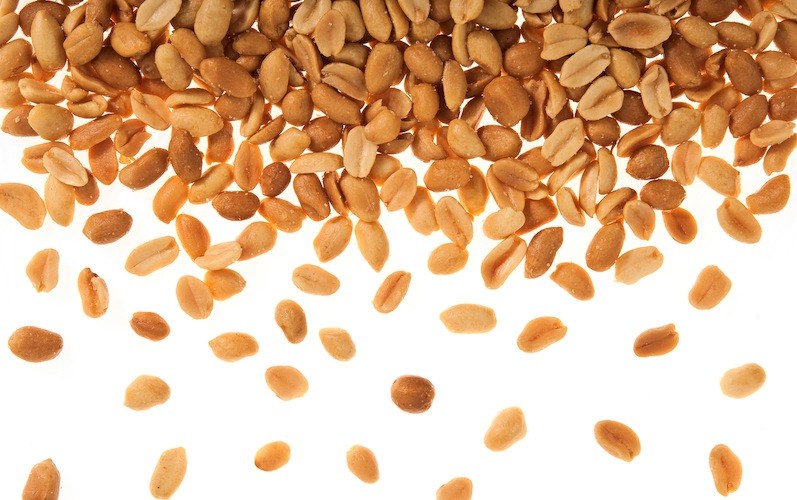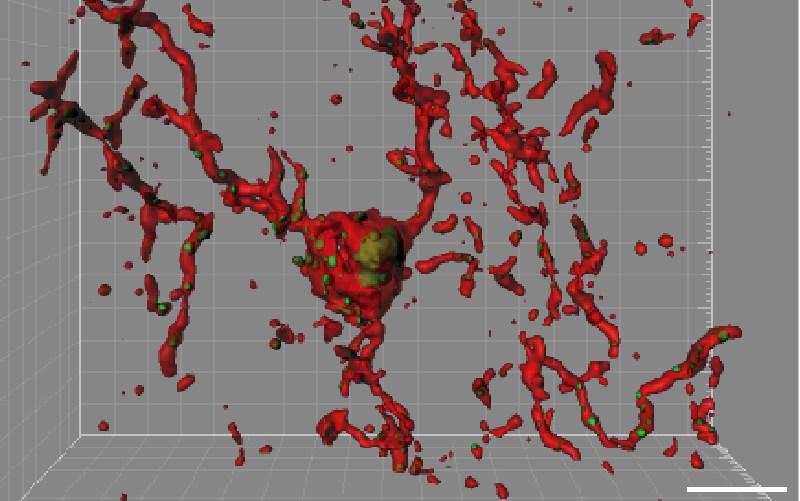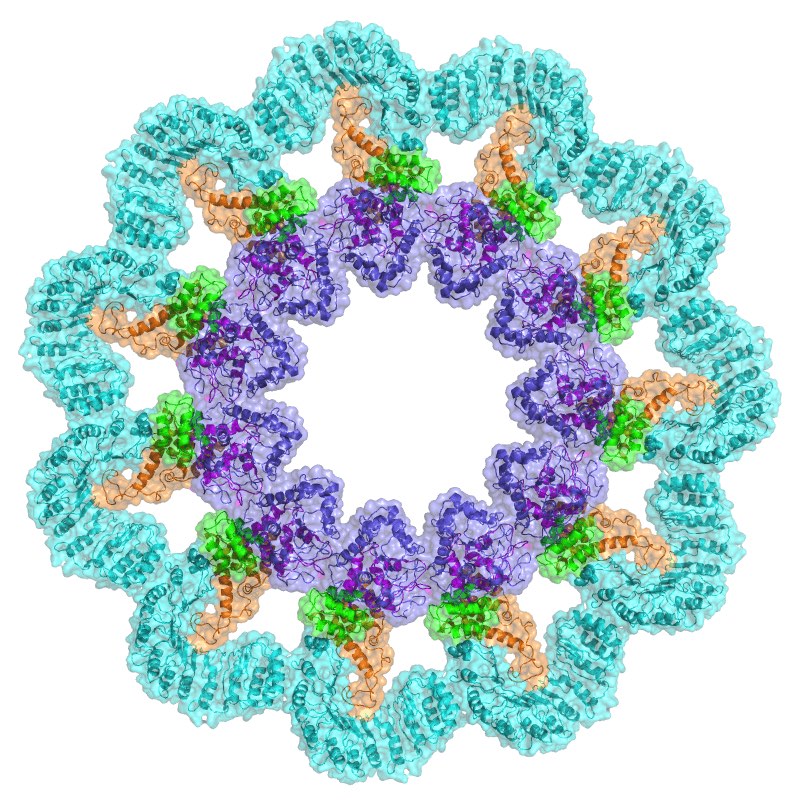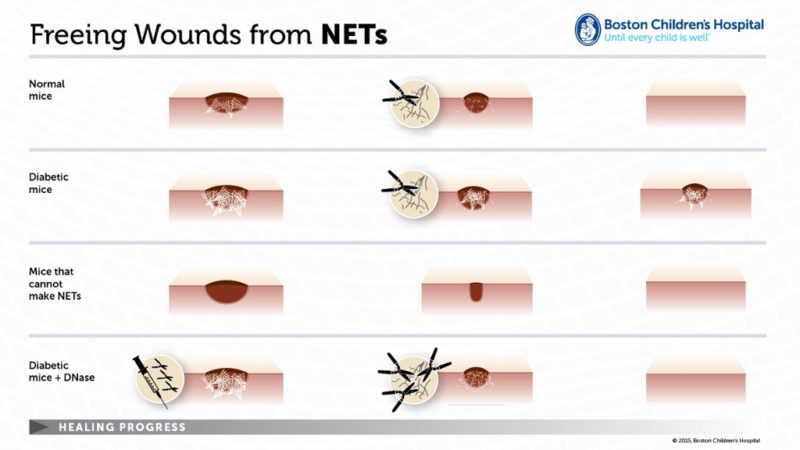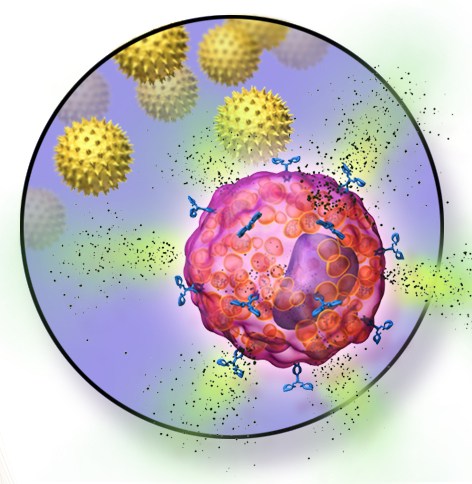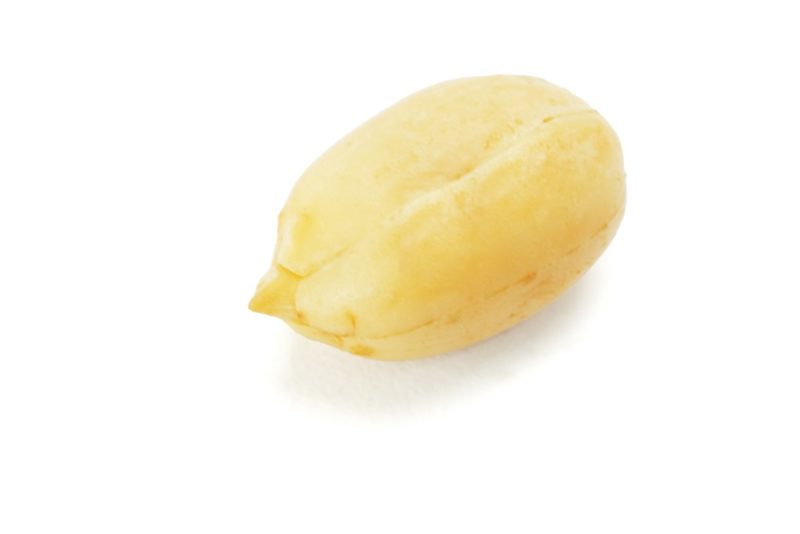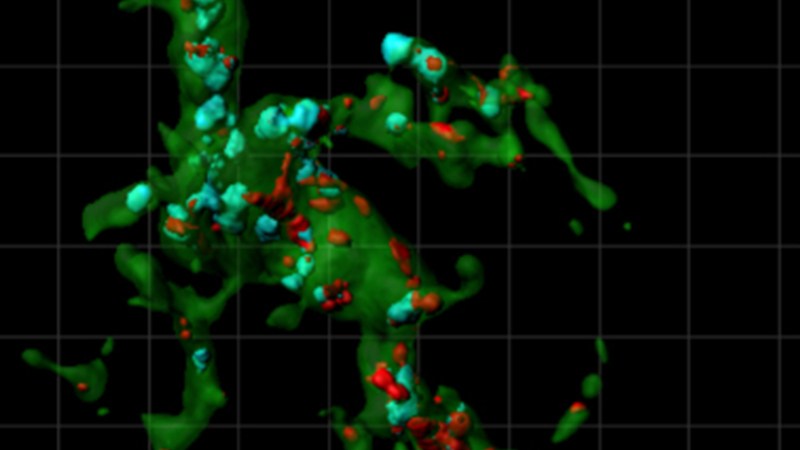Archive for immunology
Can asthma be nipped in the bud?
Worldwide, asthma affects an estimated 300 million people, and is expected to surpass 400 million by 2025, according to the World Health Organization. About 1 in 10 U.S. children have asthma, and research shows that the vast majority of them also have allergy. Could that provide a clue to its prevention? Starting at 2 to ... Read More about Can asthma be nipped in the bud?
Tagged: asthma, clinical trials, immunology
20-week treatment makes life safer for kids with peanut allergy
A study last week in The New England Journal of Medicine suggests that exposing infants to peanuts can provide lasting protection against peanut allergy. But what about peanut-allergic children right now? They and their parents live a life of precautions — from pre-screening birthday party menus to segregation at the school lunch table — to ... Read More about 20-week treatment makes life safer for kids with peanut allergy
Tagged: allergy, feeding therapy, immunology, immunotherapy
Targeting synapse loss in Alzheimer’s to preserve cognition — before plaques appear
Currently, there are five FDA-approved drugs for Alzheimer’s disease, but these only boost cognition temporarily and don’t address the root causes of Alzheimer’s dementia. Many newer drugs in the pipeline seek to eliminate amyloid plaque deposits or reduce inflammation in the brain, but by the time this pathology is detectable, it’s unlikely medications can do much to slow ... Read More about Targeting synapse loss in Alzheimer’s to preserve cognition — before plaques appear
Tagged: alzheimers disease, immunology, neurology, neuroscience
Science seen: A “wheel of death” for bacteria
The innate immune system acts like a border patrol for the body, picking up bacteria and other invading pathogens using molecular sensors. One key player is the inflammasome, a multi-protein complex depicted here through cryo-electron microscopy (cryo-EM). Using structural biology tools like cryo-EM and X-ray crystallography, the Wu lab in Boston Children’s Hospital’s Program in Cellular and Molecular ... Read More about Science seen: A “wheel of death” for bacteria
How our neutrophils might sabotage wound healing in diabetes
When you get a cut or a scrape, your body jumps into action, mobilizing a complicated array of cells and factors to stem bleeding, keep the wound bacteria-free and launch the healing process. For most of us, that process is complete in a couple of weeks. But for many people with type 1 and type ... Read More about How our neutrophils might sabotage wound healing in diabetes
Food allergies: Turning tolerance back on
Hans Oettgen, MD, PhD, is Associate Chief of the Division of Allergy and Immunology at Boston Children’s Hospital. He leads a research group investigating mechanisms of allergic diseases. Not long ago I received a wonderful email from “Sam,” an 18-year-old young man with peanut allergy. He was participating in a clinical trial of oral immunotherapy ... Read More about Food allergies: Turning tolerance back on
Tagged: allergy, clinical trials, immunology, research
This post may contain peanuts: Two-pronged treatment may ease severe allergies
Tripp Underwood contributed to this post. Families with peanut-allergic children live in fear that their child will ingest peanuts—even minute amounts—accidentally. Now, a small pilot study published in the Journal of Allergy and Clinical Immunology offers hope for peanut allergy. In the year-long study, immunologist Dale Umetsu, MD, PhD, and colleagues in the Division of Allergy and Immunology at ... Read More about This post may contain peanuts: Two-pronged treatment may ease severe allergies
Tagged: allergy, clinical trials, feeding therapy, immunology
Immune cells “sculpt” brain circuits — by eating excess connections
The image above and the movie below show an immune cell caught in the act of tending the brain. The cell below has just eaten away unnecessary connections, or synapses, between neurons. That’s not something these cells, known as microglia, were previously thought to do. As immune cells, it was thought that their job was ... Read More about Immune cells “sculpt” brain circuits — by eating excess connections
Tagged: alzheimers disease, autism, autism research, epilepsy, immunology, neurology, neuroscience



